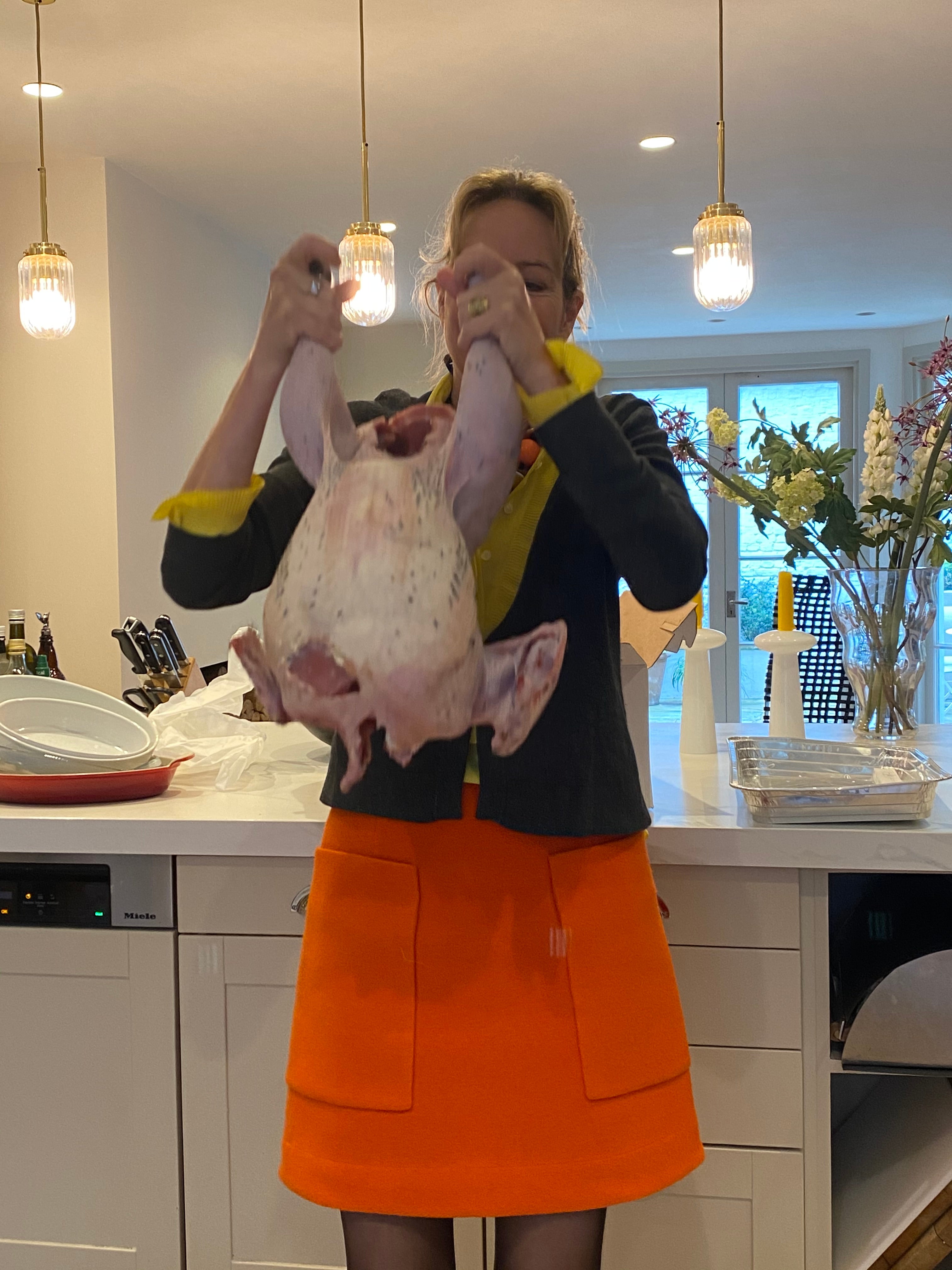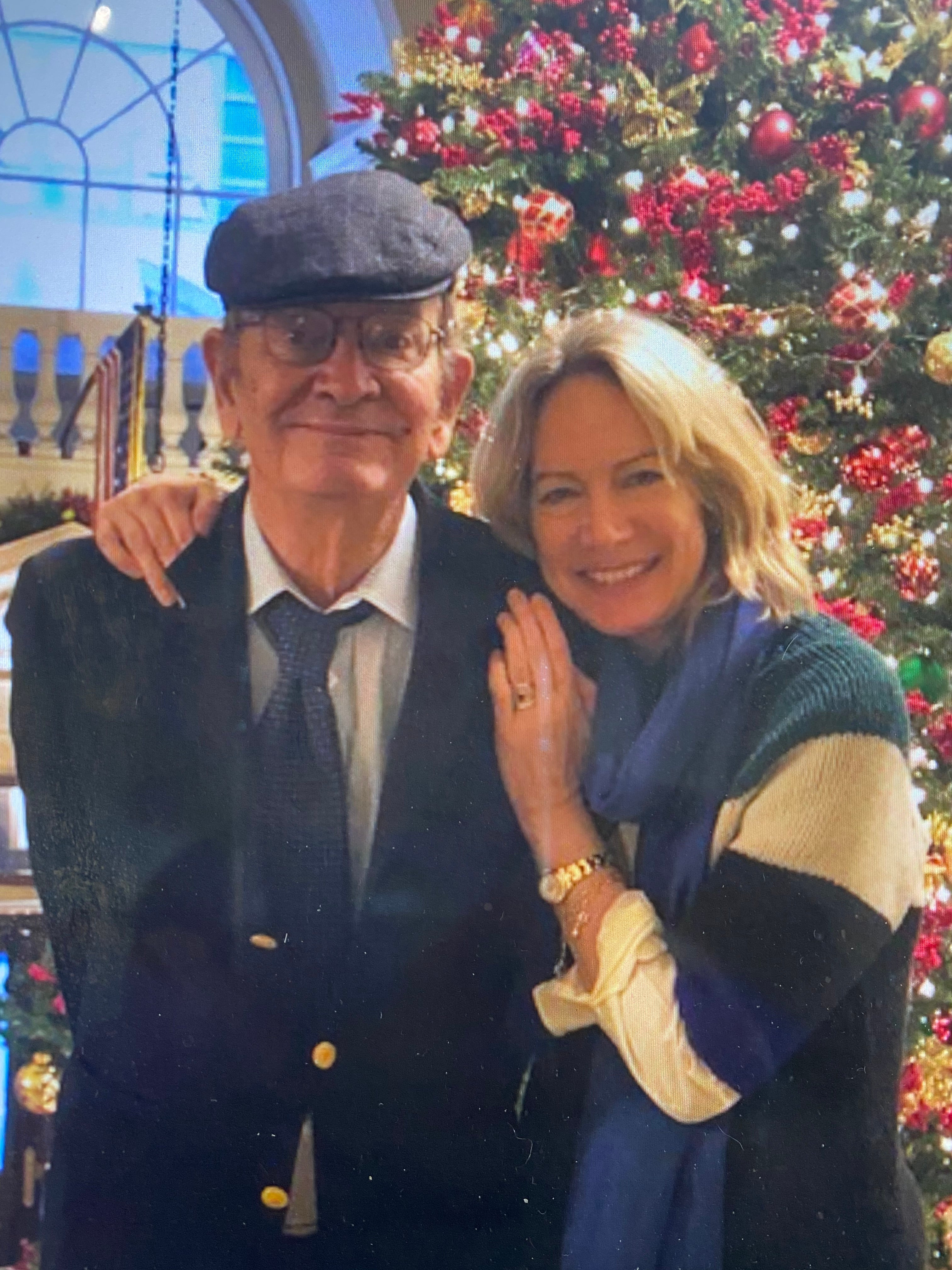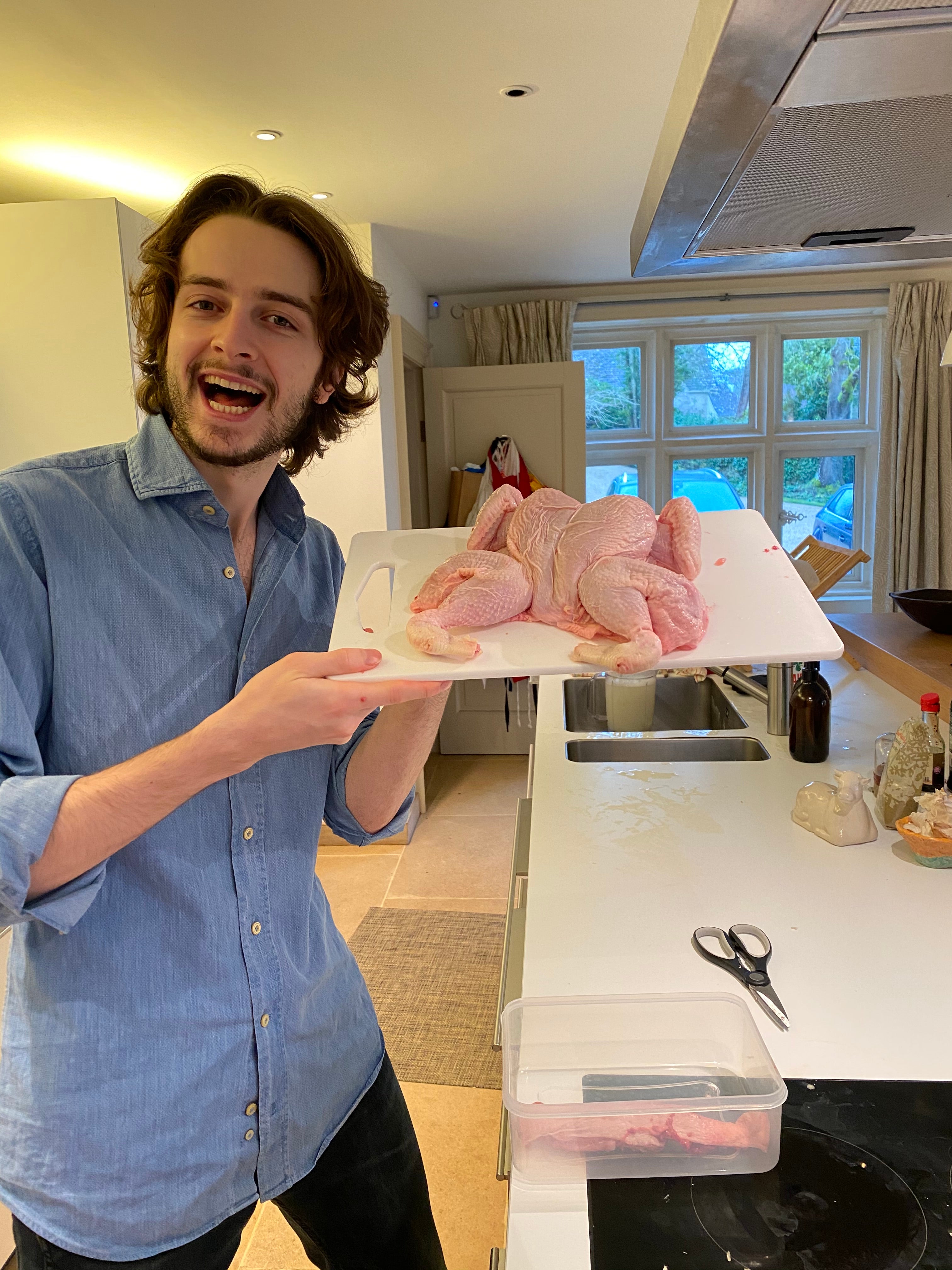The psychological trick to having a truly restful Christmas (that works every time!)
Know what not to waste your time on, says Helen Kirwan-Taylor who picked up the art of ‘learned helplessness’ from her father... and finds it’s a festive lifesaver


Christmas dinner, what can I say? Our turkey normally arrives with an instruction booklet aimed at graduate-level engineers. There’s volume to be multiplied by temperature to be divided by metaphysical time. With 14 settings on our brand-new oven (in cryptic visual code that I really can’t decipher), sticking a bird in is no simple feat. Yes, I could spend a few hours trying to work it all out with Prof Google, or I could throw up my arms in front of the person closest to me and wait to be dismissed from the task at hand.
“Let me do that” is the answer I am looking for. I don’t mind the condescending voice or the shaking of the head. I am well-rehearsed in the art of “learned helplessness” which I was taught by my very own father (he wouldn’t have had the wherewithal to order a turkey, let alone cook it).

In the 1960s – in an experiment that could never be done today – the American psychologists Martin Seligman and Steven F Maier delivered electric shocks to dogs (following in Pavlov’s footsteps). Dogs who learned that they couldn’t escape the shock whatever they did, rapidly became helpless and depressed (even though the shocks eventually stopped. The dogs didn’t bother trying again). The experiment was repeated on humans who were subjected to loud, unpleasant noises. One group was offered a silencer that worked; the other couldn’t stop the noise whatever they tried. Again, a sense of apathy and helplessness took over the second group. A third study gave two groups of students a sheet of paper with three anagrams to solve. There were two versions: the first was easy to solve, the second was unsolvable. Needless to say, those who unscrambled the first set of two managed the more difficult third one painlessly. Those facing the unsolvable version gave up after the first anagram. Their response was “Nothing worked, so why try?”
In his 1975 book Helplessness: On Depression, Development and Death, Seligman argued that humans are just like those dogs: if we assume nothing we do can influence the outcome, we just give up altogether. We shut down. This freeze response is hardwired in us: better to endure the pain than waste energy fighting it (in Man’s Search for Meaning, Viktor Frankl describes how the stronger male Auschwitz inmates who tried to control events (and gave up) perished first. Those who were more passive and “daydreamed” about the future were more likely to survive).
A modern-day example of learned helplessness is the over-parented child who relies on tutors to get through school and university, and then fails as an adult in the workplace. This can then lead to PTSD, depression, illness and despair.

That is unless you turn it on its head. My late father, an American diplomat, enrolled at Yale at the age of 17 (he was the youngest student of his generation). Part of my father’s extraordinary intelligence was knowing what not to waste his time on. This included most forms of parenting and anything faintly domestic. He was born in New York City to a doting mother who employed nannies and housekeepers, ensuring he never learned how to do a single thing. He took this gift into his professional life and his marriage. At work, his superb writing skills quickly earned him promotions. The fact no one could read his minuscule writing served him well: he was assigned a permanent secretary. When technology arrived, my (by then widowed) father learned how to turn his computer on or off and nothing beyond that because his two doting daughters set him up with a permanent tech support man (who then sent us the bills).
We once came home at Christmas time to find water spilling from the ceiling (the toilet had burst above). I shouted, “Dad, there’s a huge leak” to which he replied, “I know that’s why there’s a bucket”. No plumber had been called: he had waited for me to arrive to sort it out.
Dad never learned to put anything in the dishwasher. He tried a few times, sort of. He would put the cup in the tray right way up so it would fill with soapy water and require a second wash. At Christmas time, he read the instructions on the back of the tree lights box as though it were Wittgenstein. After 30 minutes, one of us would impatiently prise it out of his hands.

Funnily enough, no one ever asked him to shop, cook, set a table or light a candle. So, here I am, a keen student of psychology, now behaving just like my father (I only just worked out that the dishwasher has a special salt compartment). Somehow, I have spawned two highly competent sons who know how to cook and increasingly despair at my perceived uselessness. My youngest, Ivan (28) worked out a while ago that perhaps I am not that pathetic: perhaps I just don’t want to do it. In fact, he drew me a cartoon of a teacher explaining learned helplessness to a classroom with the caption “Here’s how do it.”
“Just watch her cook Christmas dinner and you’ll see my point,” he says. “Where do we keep the garlic? Is this pan still okay to use? Oh god, I’m burning it.’ All of these words represent the same command: please do this for me. It’s a command made either to the husband, or (when they are of age) the children. I worry sometimes, ever so slightly, because years of learned helplessness often lead one to ‘boy who cried wolf’ situations, on occasion. ‘How do I turn on the TV?’ I cry as my labour force is nowhere to be found – one must then strive to find the power button on the remote, in anguished solitude.
But learned helplessness has distinct advantages. Rob Walker, my New Zealand plumber, admits that my cries for help get him over to our house faster. But maybe I am the exception.
“These days the woman understands how everything mechanical works and the man screams, ‘Just fix it,’” he says. To me that just sounds like a lose-lose for everybody. So, with that in mind, I’ll get someone to pour me the perfect cocktail because I am no good at remembering what measures for what and settle down for another happy, relaxing Christmas. Chin, chin.



Join our commenting forum
Join thought-provoking conversations, follow other Independent readers and see their replies
Comments